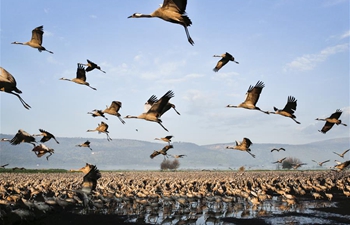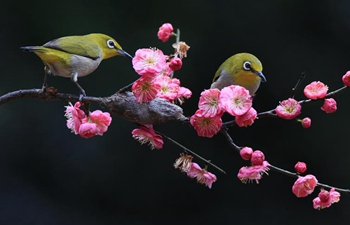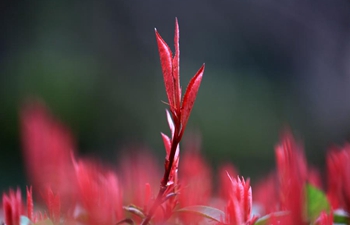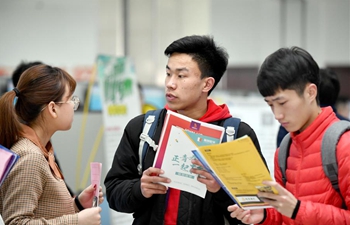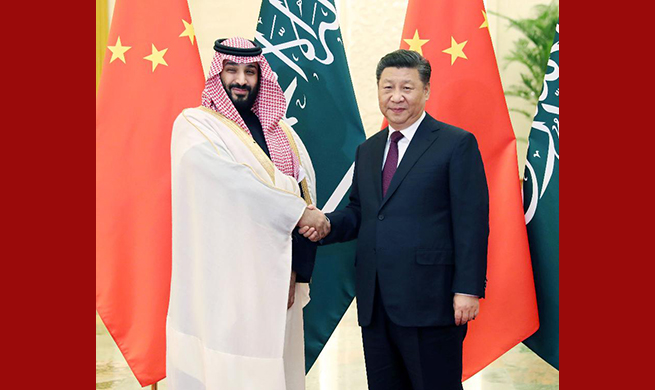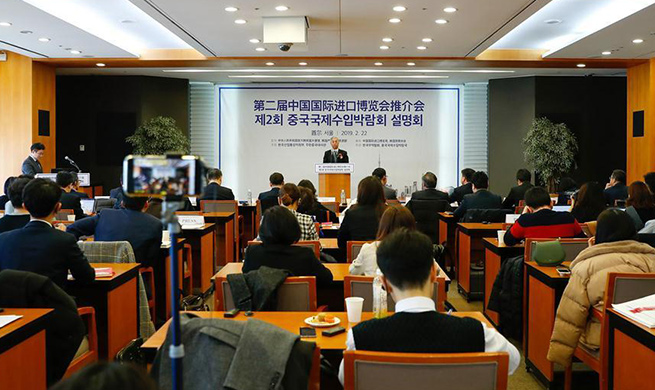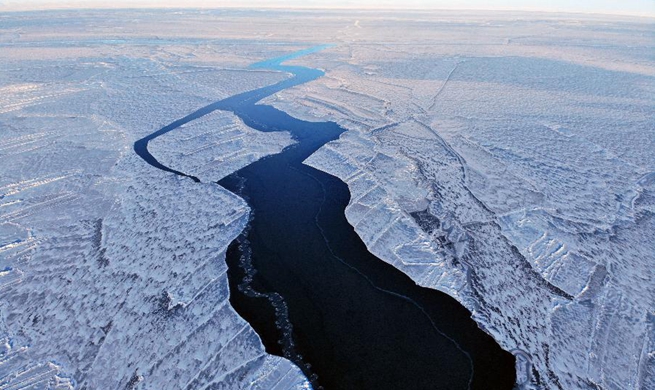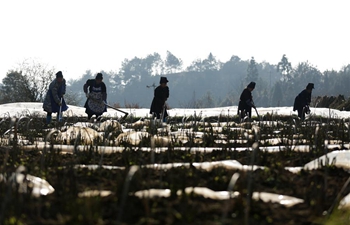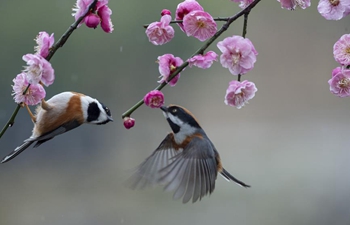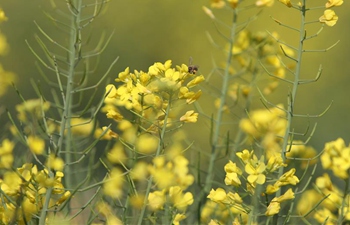NAIROBI, Feb. 23 (Xinhua) -- On his quarter-acre farm in Athi River, an area to the south of Nairobi, Kenya's capital, Joseph Musyoka farms tomatoes that are currently fruiting.
He is hopeful that he will start harvesting the fruits from the 500 plants before the anticipated long rains season that is expected to start at the end of next month, and make good money.
A look at the crops shows that they are doing well, yet Musyoka does not water them using the popular drip irrigation system, which a number of Kenyan farmers are adopting.
The youthful farmer has improvised his own drip irrigation system comprising of small used plastic bottles filled with water.
The system has not only helped him avoid the high costs associated with drip irrigation system, but is also enabling him to grow food despite the erratic weather in the east African nation as well as protect the environment.
"I paid two garbage collectors to get me the bottles from the nearby Athi River town where they are usually dumped and become an eye sore or end up in River Athi that passes in this area."
"They brought me some 350 bottles of various sizes after two weeks of collecting, and went for me in the neighboring towns like Kitengela and Mlolongo. I paid them 2 shillings (about 0.02 U.S. dollars) for each," he said on Saturday, noting he has close to 1,000 bottles.
Armed with the bottles, the farmer then planted his tomatoes inside the greenhouse after transferring them from a nursery.
"I then washed the bottles thoroughly and disinfected them to ensure they are free of any diseases. I, thereafter, made small holes on the caps of the bottles, filed them with water and inserted them in the soil near each plant," he explained.
The small holes made on the bottle caps release water slowly into the soil, penetrating to the roots of the plant making it thrive.
"I have been using the method over a year now and it is serving me well because my crops are flourishing especially during the dry season as it is now," he said.
Musyoka fills water in the bottles depending on the stage of growth the plant is at.
"If about a month-old, as that is when I transfer them from the nursery, I put in the bottle about 100 ml of water and refill after two or three days. If close to three months old when they are fruiting, I fill with 300 ml and refill after two days," he explained.
Though it is a tedious task, it is worth it, he said, adding that he refills after some days to avoid diseases like root rot which attacks the plants when the soil is too wet.
It costs at least 600 dollars to install a drip irrigation system on quarter-acre farm, with the bulk of the money going to a water tank, including mounting it at a higher level, labour and the rest on the drip lines.
"Drip irrigation system is expensive because of its many costs. If you are far from the water source, you have to incur additional costs of pumping the water into the tank using most likely a petrol water pump, before it flows to the plants. This raises expenses," said Moses Andati, a farmer in western Kenya.
Andati is also using the improvised drip system to grow bananas and vegetables.
Beatrice Macharia, an agronomist with Agro-Point, a consultancy in Nairobi, noted that the innovative drip irrigation method is part of permaculture, which utilizes ecologically friendly farming methods.
"In this system, farmers are encouraged to use things that are readily available in their environment to grow food in a sustainable way," she said, noting however, a majority of those using it are in dry areas which receive little rainfall.
In Kenya, the bottling method is used on food crops and even on trees and flowers especially during the dry spell, according to Macharia.
Through the method, she noted Kenyan farmers are helping the country curb the plastic bottle menace that is chocking east African nation's rivers and the environment by reusing the bottles and later disposing them in a better way.
